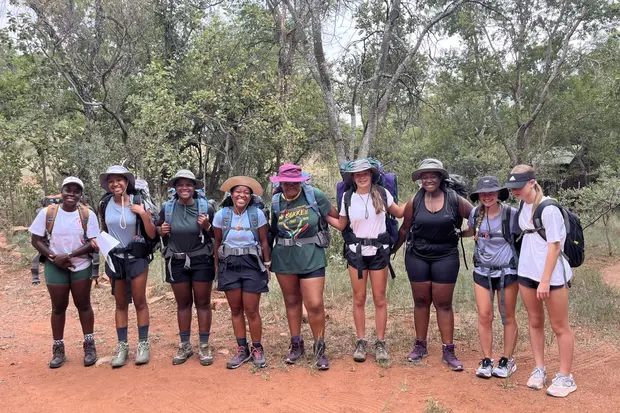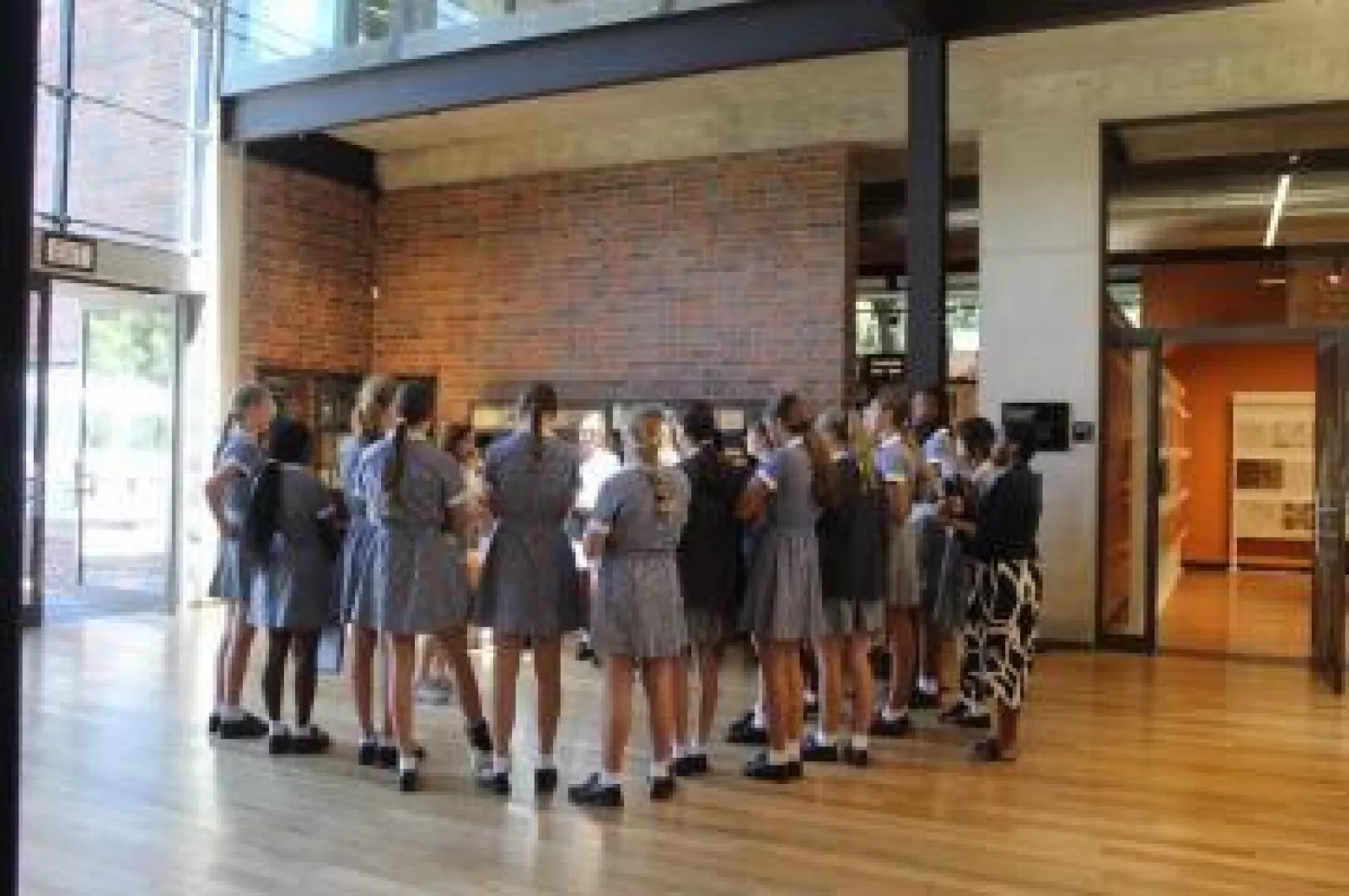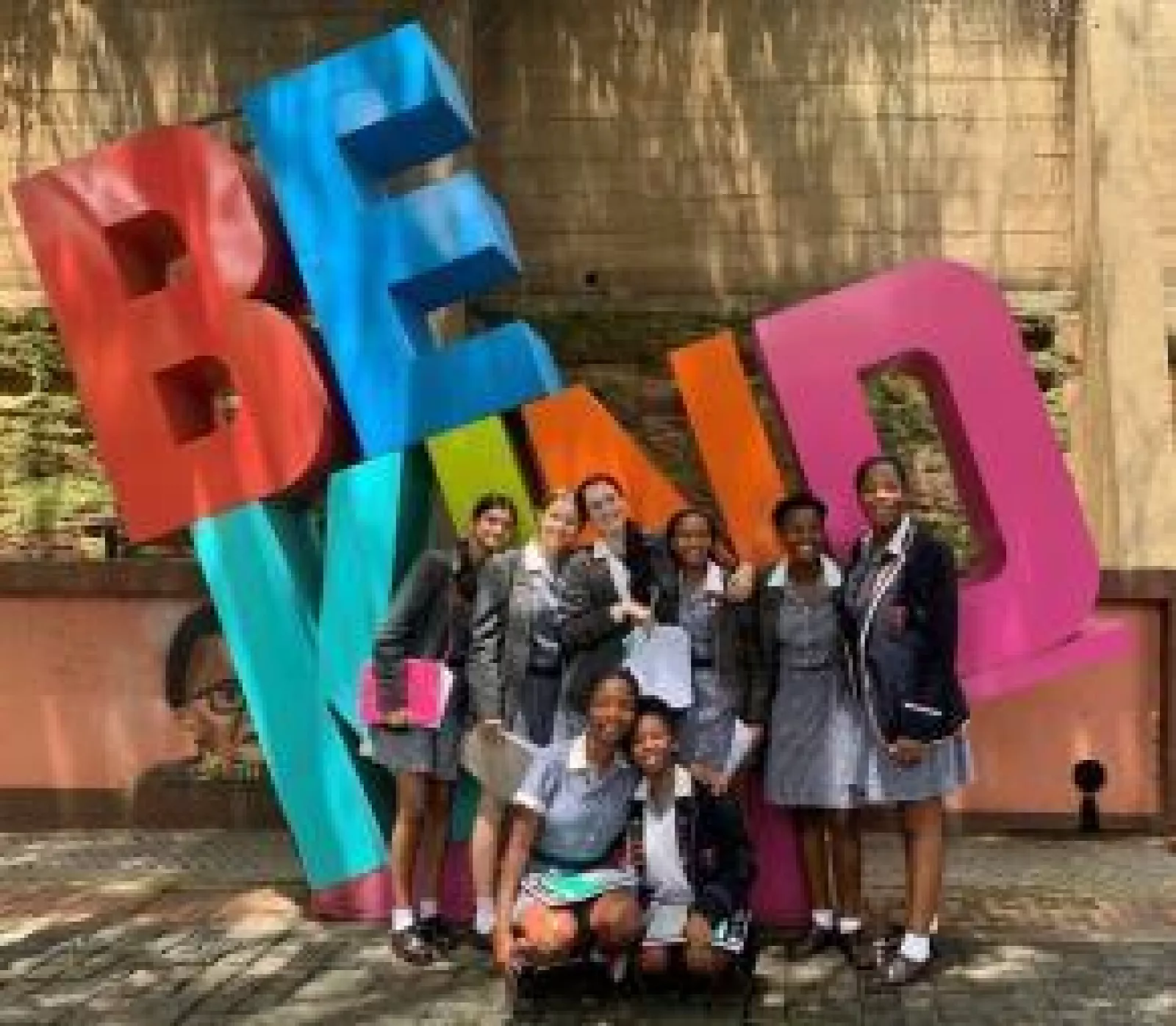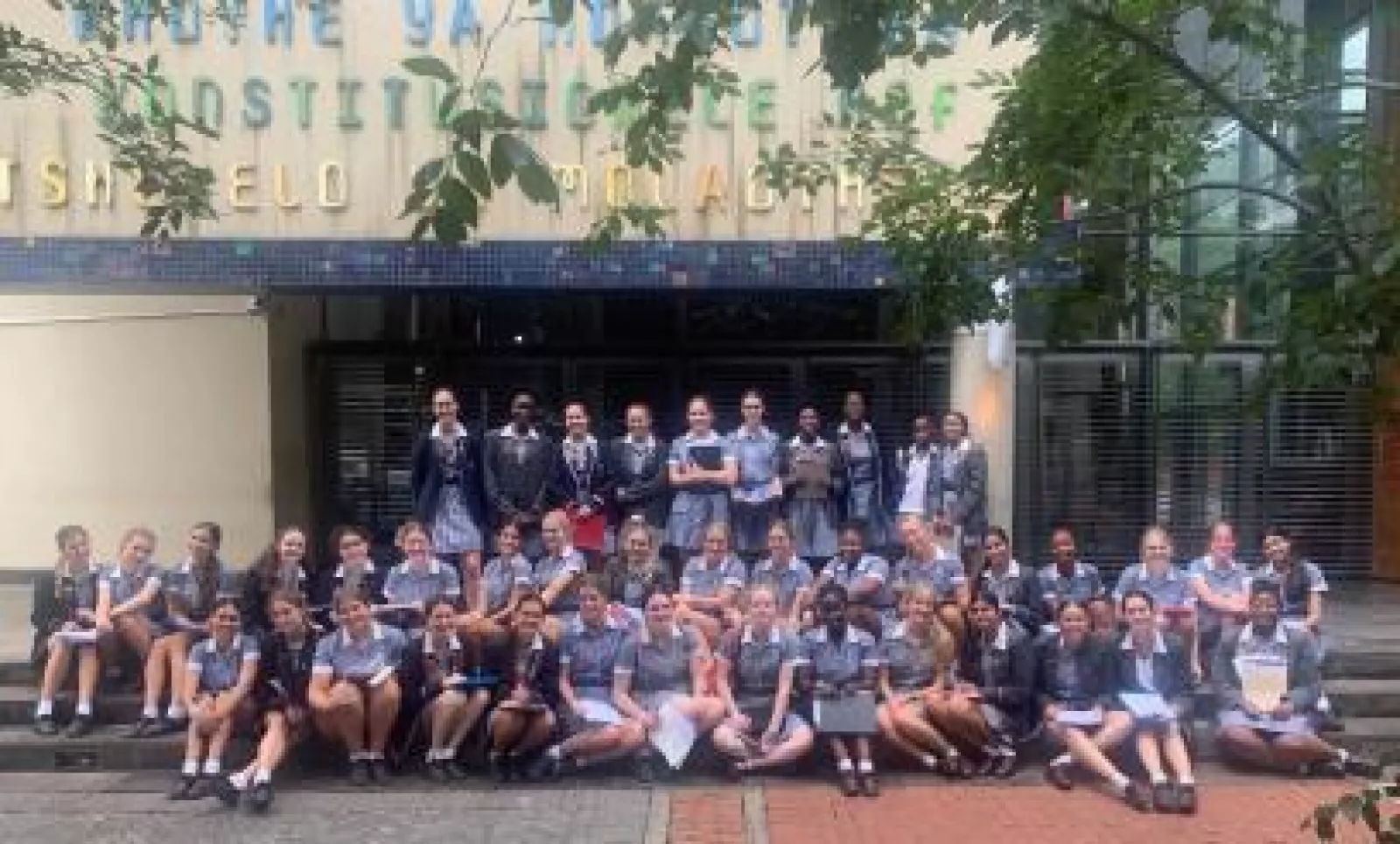From the History Department
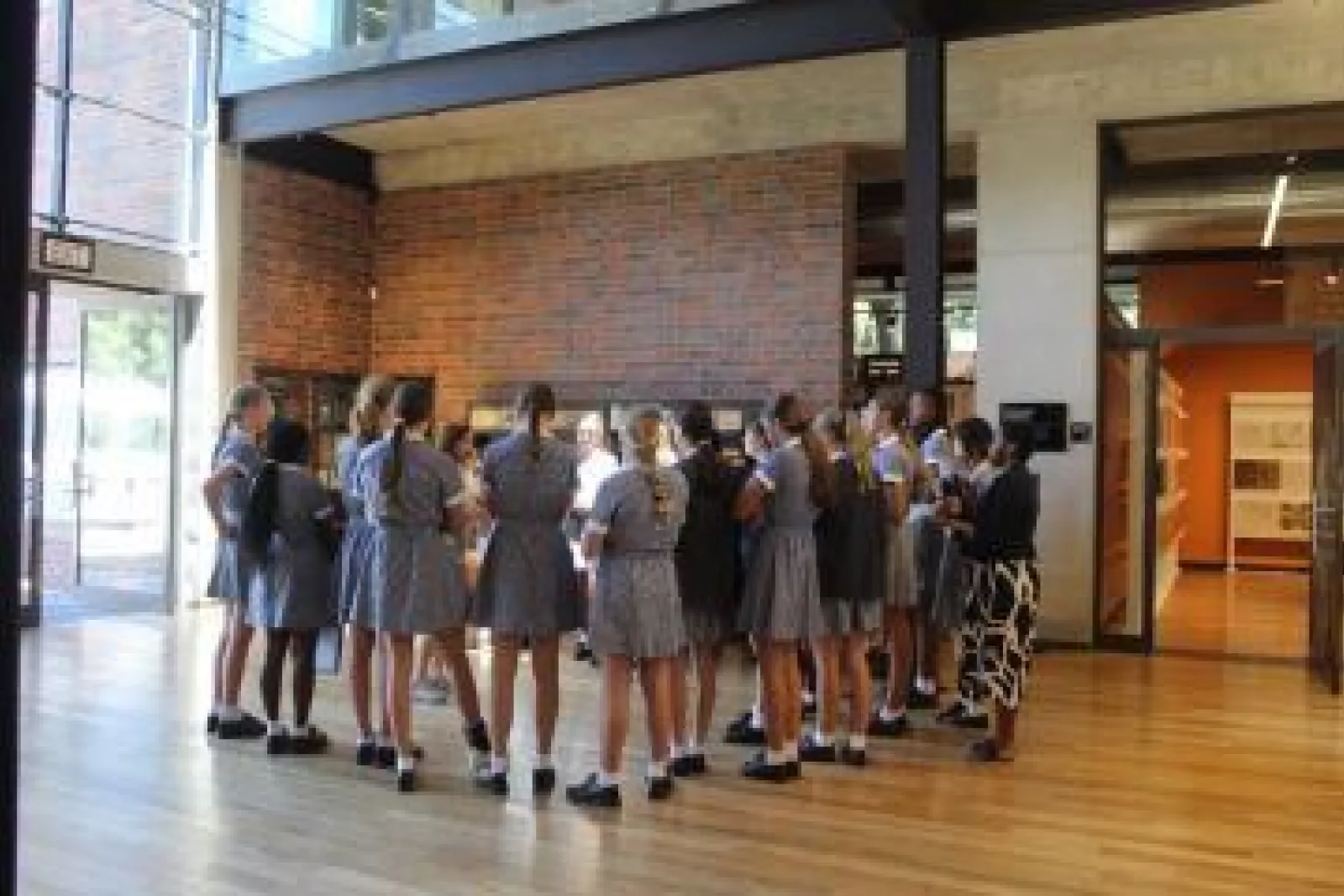
HISTORY EXPERIENCES TERM I
Form II outing to the Johannesburg Holocaust & Genocide Centre
The Form IIs visited the Johannesburg Holocaust & Genocide Centre in March. Our girls were given the opportunity to learn from both the permanent exhibition that explores the chronology and nature of the Holocaust as well as the current temporary exhibition called, Seeing Auschwitz.
The permanent exhibition features an impressive display of primary and secondary sources from the Holocaust. The duration of the exhibition is intentional and moving, with each phase of the Holocaust explained through the text, artifacts and design of the space. Our girls noted the subtle but impactful choices that make the museum particularly effective. For example, in the section that describes ‘Jewish life before the war,’ the room is laid out to feel like a home and includes scenes of domestic life with images of ordinary school children and carefree families. In contrast, the section that describes the Nazi Party’s rise to power is designed to feel smaller, tighter and more rigid and includes the colour red througout. Seeing Auschwitz was a particularly interesting exhibition as it gave our Form II pupils the opportunity to practice their photograph analysis skills and explore a series of primary sources.
The temporary exhibition showcases over 100 images taken from the perspectives of perpetrator, victim and bystander. The central question posed throughout the exhibition and with which our girls grappled was, can a source of history ever really be neutral?
Form III Rwandan Genocide Workshop
The Form III topic this term was the Rwandan genocide. In class, we covered the events of the genocide and examined the concepts of causation as well as accountability, justice and reconciliation.
On Wednesday 22 March, our Form IIIs had the privilege of participating in a workshop focused on the Rwandan genocide. The experience was run by educator, Catherine Boyd and genocide survivor, Christine Elsie Niwemfura. The day included the viewing of a documentary, analysis of testimony from a wide range of perspectives – from Tutsi victims, Hutu perpetrators and bystanders such as the United Nations – and finally a talk by Niwemfura where she shared her own harrowing account of April 1994. Our girls also investigated the role of propaganda in the genocide by examining translated transcripts from Radio Télévision Libre des Mille Collines (RTLM), a popular radio station that promoted the ideas of Hutu hardliners.
The day was a difficult but meaningful one.
Form V Subject Focus Day
Our annual Form V subject day regained a sense of normalcy this year as we were able to venture out of the classroom and visit both the Apartheid Museum and Constitutional Hill. This has not been possible for the past two years owing to the Covid-19 pandemic and the temporary closure of museums in Johannesburg.
The Form V field trip began at the Apartheid Museum where our girls spent three hours exploring the various exhibits and artifacts on display and answering a series of questions. The Form Vs seemed to immediately understand the symbolism of the museum and many of the girls commented on how one is taken on, not only a chronological journey, but also on an emotional one. From the vantage point at the museum’s entrance, our girls noted the legacy of mining and segregation visible in the Johannesburg skyline and the overgrown, abandoned mine dumps. The Form V History pupils engaged meaningfully with the content here - they analysed Ernest Cole images from the 1950s, engaged with Steve Biko’s SASO newsletters of the 1970s and listened to difficult TRC hearings from the 1990s.
We also visited Constitutional Hill. Here we focused primarily on two areas of the vast complex: ‘Number Four’, the section of the prison reserved for black men and the ‘Women’s Jail’, where activists such as Fatima Meer and Albertina Sisulu were imprisoned. Our Form Vs learned about the history of the Old Fort, the segregation and hierarchy that existed even in prison and the distressing accounts of the inmates. The girls reflected on the past and present functions of the site and used their analysis skills to debate why certain aspects of society should be memorialised and recorded.
The 2023 History Subject Focus Day was certainly a success and served as a reminder that much of our recent South African history does not tell the story of strangers but rather tells the story of ourselves.
ALISON ANDREW
HEAD OF HISTORY
Related News
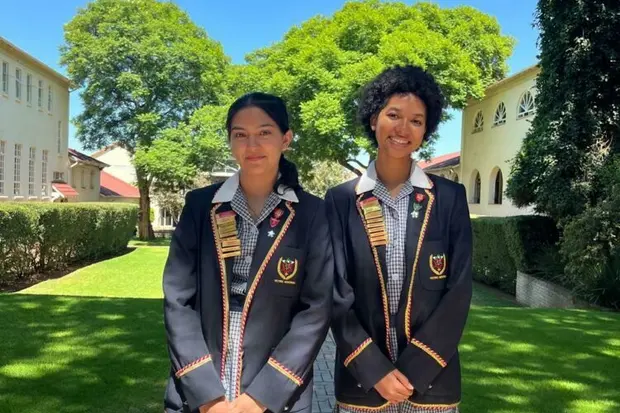
From the Senior School head's desk: 31 January 2025
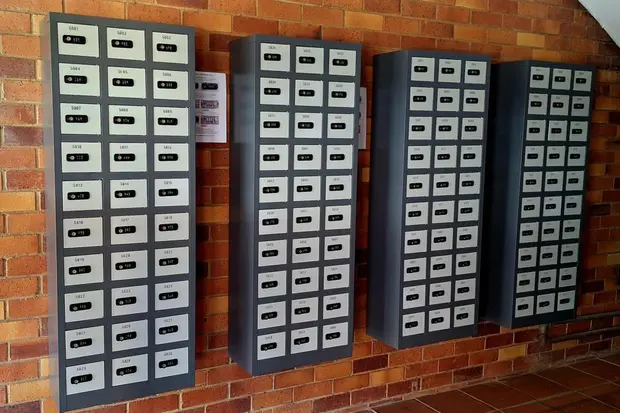
Cellphone-free academic time
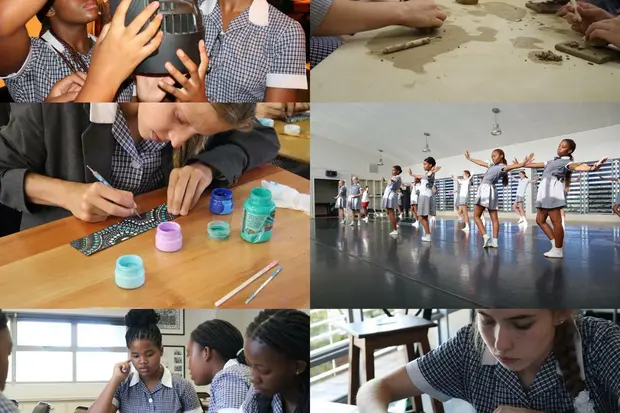
Cultural clubs
